Why benchmarks?
Benchmarks provide an essential tool for measuring and comparing corporate performance on the SDGs. They equip financial institutions, companies, governments, civil society and individuals with the information they need to exert their full influence.
The benchmark development process
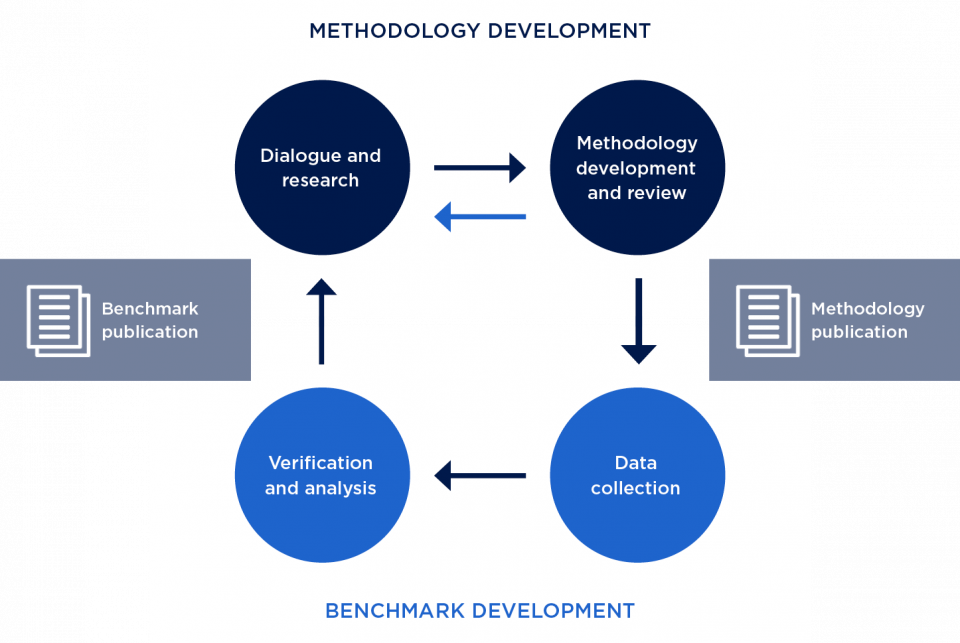
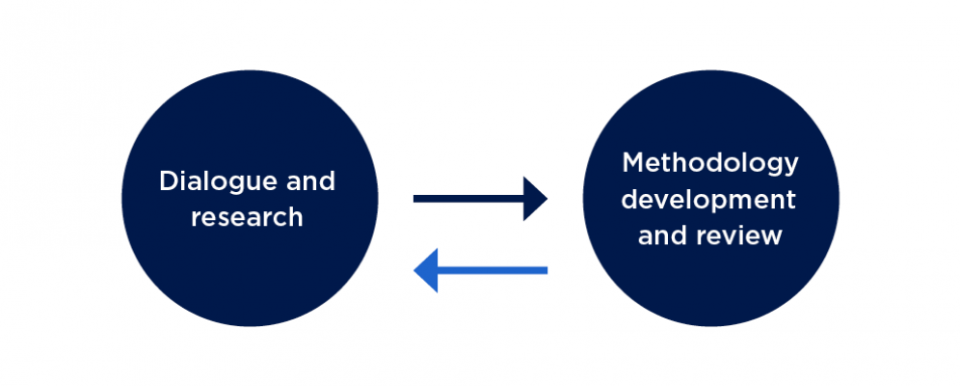
Methodology development
- Dialogue and research: The development of a benchmark’s methodology typically starts with the WBA benchmark team developing a methodology outline.
- Methodology development and review: This outline is then reviewed and discussed with the Expert Review Committee (ERC).
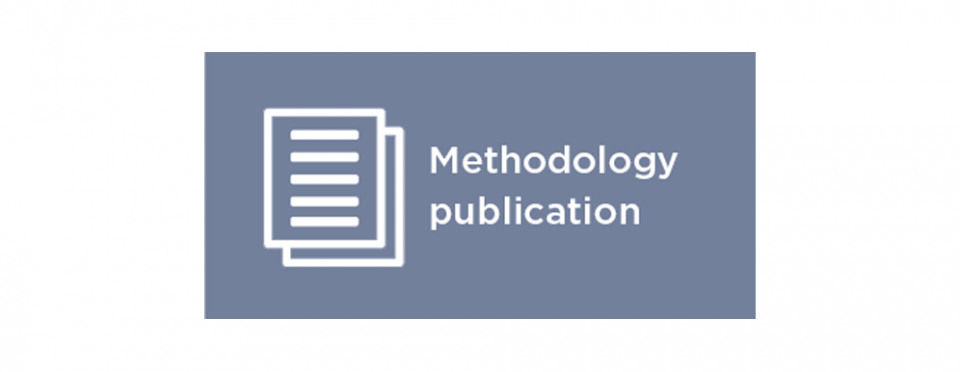
Methodology publication
Based on the ERC’s feedback, the methodology is drafted and opened for public consultation, after which it is updated, reviewed by the ERC again and published.
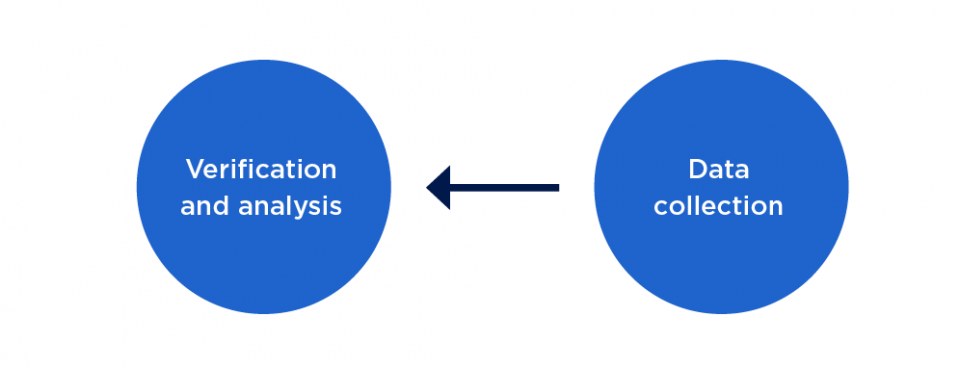
Data analysis
- Data collection: Data is collected based on the methodology through an online data platform. The form is pre-populated with publicly available information and sent to companies in scope to complete.
-
Verification and analysis: Once all of the data is received, it is verified and analysed.
Following this the scoring guidelines are finalised, scores are finalised and scorecards are written.
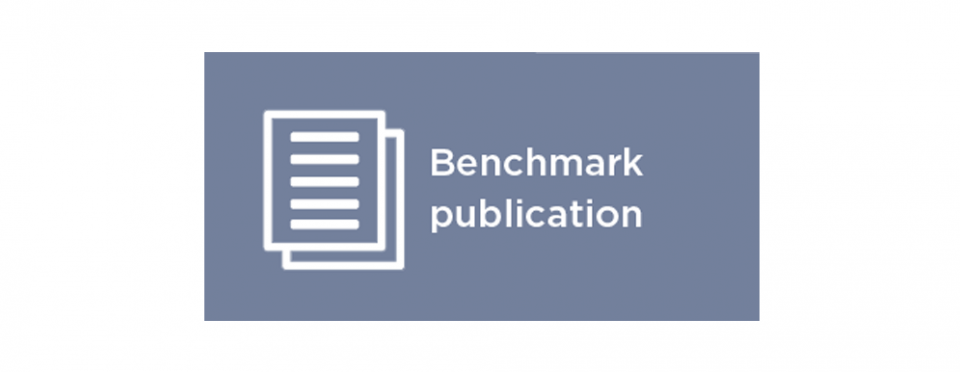
Benchmark publication
The ERC is consulted prior to the publication of the report to review and provide input on the benchmark’s key findings, lessons learned and recommendations for companies. The final report and rankings are then made public.

Methodology review
Stakeholder dialogues are an essential way to evaluate and discuss the results of the benchmarking cycle. Based on the feedback received during these dialogues, the benchmark methodology is updated and the development cycle starts again.
.
